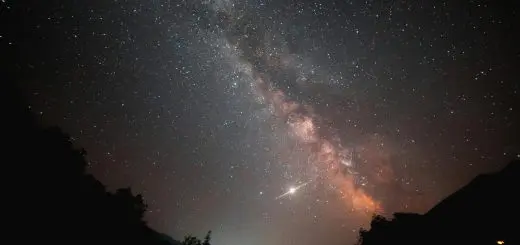Spanish Folklore: Exploring Myths and Legends

Looking for more amazing products? Check out our online store and explore our collection here! Happy shopping!
Before diving in, please note: This post is for informational purposes only. If you’d like to know more about how we approach topics, feel free to check out our friendly Disclaimer Page.
Hey there, amazing readers! 
We’re committed to delivering quality posts, and your support (even just sticking around despite the ads) means everything to us. So, bear with us, and thanks for helping us keep the good vibes rolling. Now, on to the fun stuff!
TRANSLATE BUTTON AT THE END OF THE ARTICLE
Introduction to Spanish Folklore
Spanish folklore is a rich tapestry of myths, legends, folktales, and traditions that have been passed down through generations.
It reflects the unique cultural heritage of Spain and offers a glimpse into the beliefs, values, and customs of its people.
From legendary creatures to mythical heroes, Spanish folklore is a treasure trove of stories that continue to captivate audiences around the world.
In this article, we will delve into the origins, popular tales, supernatural beliefs, and the role of folklore in Spanish culture.
Origins of Spanish Mythology
The roots of Spanish mythology can be traced back to a blend of ancient Celtic, Roman, Visigothic, and Moorish influences.
These diverse cultural interactions contributed to the rich tapestry of myths and legends that define Spanish folklore.
The Moors, in particular, brought with them a wealth of mystical tales and legends that became intertwined with the existing folklore of the Iberian Peninsula.
Over time, these stories evolved and adapted to reflect the beliefs and values of the Spanish people, creating a unique and vibrant mythological landscape.
Popular Spanish Folktales
Spanish folklore is replete with a myriad of popular folktales that have been passed down through generations.
One such tale is "La Llorona," the weeping woman who is said to roam the streets at night, searching for her lost children.
Another well-known folktale is "El Coco," a malevolent creature that hides under children’s beds and scares them into behaving.
These tales, along with many others, serve as cautionary stories or moral lessons that have been used to impart wisdom and teach values to children and adults alike.
Legendary Creatures in Spanish Folklore
Spanish folklore is teeming with a diverse array of legendary creatures that have captured the imagination of storytellers for centuries.
From the mischievous duende to the fearsome chupacabra, these creatures embody the supernatural beliefs and superstitions of Spanish culture.
The duende, for example, is a gnome-like creature known for playing tricks on unsuspecting humans, while the chupacabra is a blood-sucking beast that terrorizes livestock.
These creatures add a sense of mystery and wonder to Spanish folklore, keeping the tradition alive and thriving.
The Role of Folklore in Spanish Culture
Folklore plays a significant role in Spanish culture, serving as a link to the past and a source of national identity.
It is deeply ingrained in the fabric of Spanish society, influencing everything from art and literature to music and dance.
Folklore is not just a collection of stories; it is a living, breathing part of the Spanish cultural landscape that continues to shape the identity of the nation.
By preserving and celebrating their folklore, the Spanish people honor their heritage and keep their traditions alive for future generations to enjoy.
Famous Spanish Legends
Some of the most famous legends in Spanish folklore include the story of El Cid, the legendary warrior who fought against the Moors during the Reconquista.
Another well-known legend is that of Count Dracula, based on the historical figure Vlad the Impaler.
These legends have inspired countless works of art, literature, and film, cementing their place in popular culture and ensuring that they continue to captivate audiences worldwide.
Influence of Spanish Folklore in Literature
Spanish folklore has had a profound influence on literature, inspiring some of the greatest works in Spanish literary history.
Writers such as Miguel de Cervantes, Federico García Lorca, and Gustavo Adolfo Bécquer drew upon the rich tapestry of Spanish folklore to create timeless masterpieces that continue to be celebrated today.
These works have not only preserved the folklore of Spain but have also introduced it to a global audience, ensuring that its influence will endure for generations to come.
Customs and Traditions in Spanish Folklore
Spanish folklore is deeply intertwined with the customs and traditions of the country, shaping everything from religious ceremonies to everyday rituals.
One such tradition is the celebration of La Noche de San Juan, a midsummer festival where bonfires are lit to ward off evil spirits.
Another custom is the annual running of the bulls in Pamplona, a tradition that dates back centuries and continues to draw crowds of spectators from around the world.
These customs and traditions are a testament to the enduring power of Spanish folklore in everyday life.
Folkloric Festivals in Spain
Spain is home to a wide variety of folkloric festivals that celebrate the country’s rich cultural heritage.
From the colorful Fallas festival in Valencia to the vibrant Feria de Abril in Seville, these events showcase the best of Spanish folklore through music, dance, and traditional costumes.
One of the most famous festivals is the Dia de los Muertos, or Day of the Dead, where families honor their deceased loved ones with elaborate altars and offerings.
These festivals are a testament to the enduring popularity of Spanish folklore and its importance in modern Spanish society.
Mythical Heroes in Spanish Folklore
Spanish folklore is populated by a cast of mythical heroes who have captured the imagination of generations.
From the brave knight Don Quixote to the cunning trickster El Lazarillo de Tormes, these heroes embody the values and ideals of Spanish culture.
Don Quixote, in particular, has become a symbol of chivalry and honor, inspiring countless adaptations and interpretations in literature and art.
These mythical heroes continue to resonate with audiences today, serving as symbols of the enduring spirit of the Spanish people.
Supernatural Beliefs in Spanish Culture
Supernatural beliefs are deeply ingrained in Spanish culture, with a long history of superstitions and folklore surrounding the supernatural.
From the belief in witches and warlocks to the legend of the cursed ghost ship, these beliefs have shaped the way Spanish people view the world around them.
Superstitions such as avoiding the number 13 or touching wood for good luck are still prevalent in modern Spanish society, highlighting the enduring influence of supernatural beliefs in Spanish culture.
Preserving Spanish Folklore: Modern Efforts and Initiatives
In recent years, there has been a renewed interest in preserving and promoting Spanish folklore through modern efforts and initiatives.
Museums dedicated to folklore and traditional crafts have sprung up across the country, showcasing the rich cultural heritage of Spain.
Organizations and societies devoted to preserving folklore have also been established, working to document and protect traditional stories, songs, and dances for future generations.
These modern efforts and initiatives are essential in ensuring that Spanish folklore continues to thrive and remain a vibrant part of the nation’s cultural identity.
Conclusion
Spanish folklore is a vibrant and diverse tapestry of myths, legends, and traditions that reflect the unique cultural heritage of Spain.
From popular folktales to legendary creatures, Spanish folklore continues to captivate audiences around the world with its rich storytelling and supernatural beliefs.
The role of folklore in Spanish culture is undeniable, shaping everything from literature to customs and traditions.
By preserving and celebrating their folklore, the Spanish people honor their heritage and keep their traditions alive for future generations to enjoy.
With modern efforts and initiatives, Spanish folklore is poised to endure and remain a vital part of the nation’s cultural identity for years to come.

The Enlightenment Journey is a remarkable collection of writings authored by a distinguished group of experts in the fields of spirituality, new age, and esoteric knowledge.
This anthology features a diverse assembly of well-experienced authors who bring their profound insights and credible perspectives to the forefront.
Each contributor possesses a wealth of knowledge and wisdom, making them authorities in their respective domains.
Together, they offer readers a transformative journey into the realms of spiritual growth, self-discovery, and esoteric enlightenment.
The Enlightenment Journey is a testament to the collective expertise of these luminaries, providing readers with a rich tapestry of ideas and information to illuminate their spiritual path.
Our Diverse Expertise
While our primary focus is on spirituality and esotericism, we are equally passionate about exploring a wide range of other topics and niches 

To ensure we provide the most accurate and valuable insights, we collaborate with trusted experts in their respective domains 
Our blog originally focused on spirituality and metaphysics, but we’ve since expanded to cover a wide range of niches. Don’t worry—we continue to publish a lot of articles on spirituality! Frequently visit our blog to explore our diverse content and stay tuned for more insightful reads.
Hey there, amazing reader! 
Check out our store here and take a peek at some of our featured products below! Thanks for being awesome!












